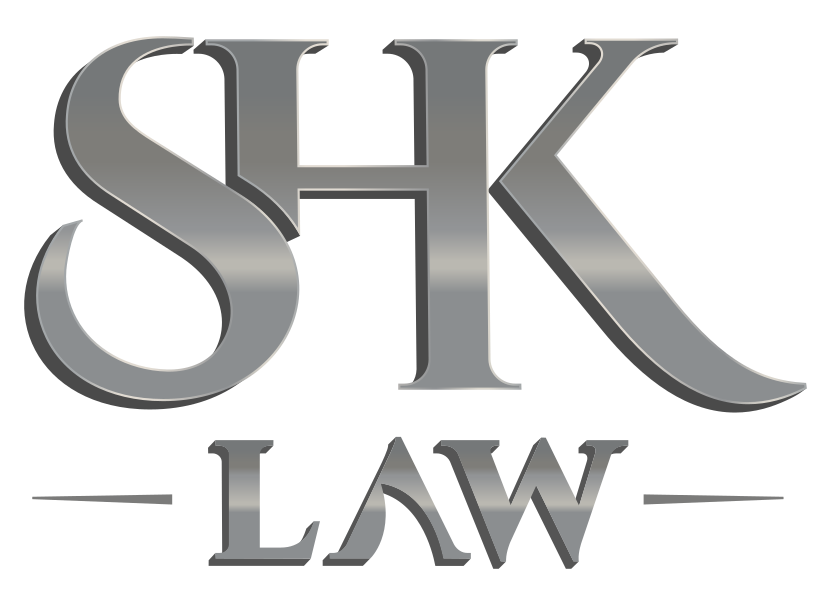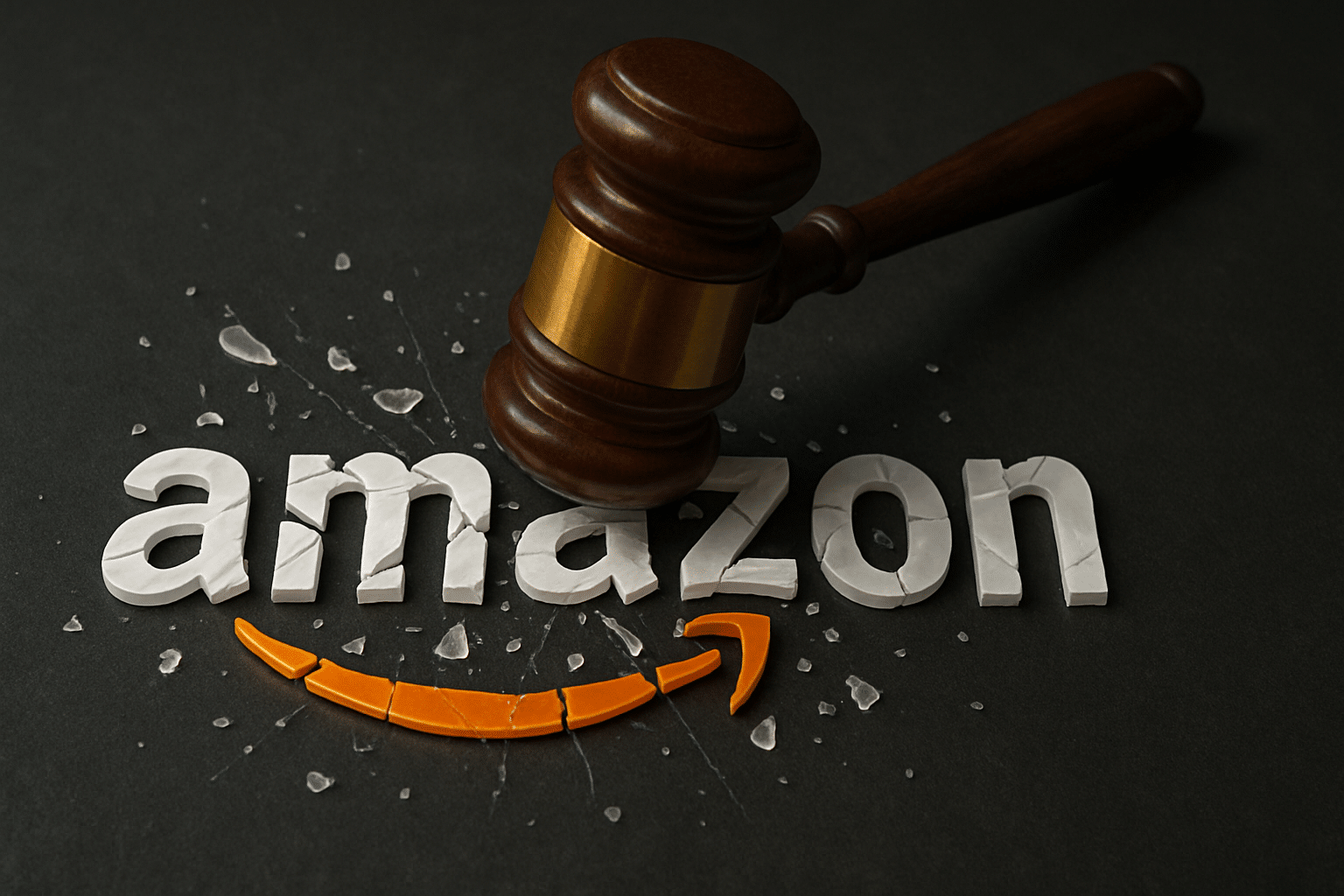Can You Sue Amazon for a Defective Product? What the Law Says and What to Do Next
When a defective product purchased on Amazon causes injury or damage, you may wonder; Can you sue Amazon for a defective product? At SHK Law, our product liability attorneys, led by Jeremy Robinson, have extensive experience holding Amazon accountable for Amazon product liability claims. With recent legal decisions shifting Amazon’s classification from a neutral platform to a liable distributor, consumers now have stronger grounds to pursue claims. Whether it’s a faulty battery, unsafe appliance, or hazardous item sold through Amazon’s marketplace, our powerhouse team of attorneys is here to guide you.
This article explores the law, key cases, Amazon’s ongoing lawsuit against the Consumer Product Safety Commission (CPSC), and steps to take, drawing on Jeremy Robinson’s expertise in suing Amazon to secure justice for clients.
Can Amazon Be Held Liable for Defective Products?
Amazon has long argued it’s merely a platform, not a seller, for third-party products, shielding itself from liability. However, recent Amazon legal decisions have changed this landscape. Courts and regulators now recognize Amazon as a liable distributor in many cases, especially under California’s strict product liability laws. Here’s why:
- Control Over Sales: Amazon manages payments, listings, and often shipping through its Fulfilled by Amazon (FBA) program, placing it in the distribution chain.
- Consumer Safety Responsibility: The CPSC ruled in July 2024 that Amazon is a “distributor” responsible for recalling over 400,000 defective products, including faulty carbon monoxide detectors and hair dryers CPSC Ruling.
- Legal Precedents: Cases like Bolger v. Amazon (2020) established that Amazon can be strictly liable for defective products, even from third-party sellers, due to its pivotal role in sales.
Under California law (Civil Code § 1714(a)), anyone in the distribution chain—manufacturers, distributors, or retailers—can be liable for defective products causing harm. This includes Amazon when it warehouses, ships, or markets items.
Key Legal Decisions Shaping Amazon’s Liability
Several landmark cases, including those spearheaded by Jeremy Robinson, have redefined Amazon’s responsibility:
- Bolger v. Amazon (2020): Angela Bolger suffered severe burns from an exploding laptop battery bought on Amazon. The California Court of Appeal ruled Amazon was liable, as it controlled the sale and shipping via FBA, overturning Amazon’s “platform” defense. Jeremy Robinson, a lawyer at SHK Law, represented Bolger, securing a precedent-setting victory.
- Loomis v. Amazon (2021): Kisha Loomis was injured by a defective hoverboard that caught fire. The court held Amazon strictly liable, citing its role in the distribution chain. SHK Law’s Jeremy Robinson led the appellate team that achieved this victory.
- Johnson v. Amazon (2024): A Texas federal court found Amazon negligent for a defective bathmat causing injuries, opening avenues for negligence claims beyond strict liability.
- CPSC v. Amazon (2024): The CPSC’s ruling mandates Amazon to recall hazardous products and notify consumers, reinforcing its distributor status.
These decisions, combined with Jeremy Robinson’s experience suing Amazon, show that Amazon can no longer evade liability for defective products causing burns, property damage, or other injuries.
Amazon’s Ongoing Lawsuit Against the CPSC
In a significant legal move, Amazon filed a lawsuit against the U.S. Consumer Product Safety Commission (CPSC) on March 14, 2025, challenging the commission’s authority to hold Amazon liable for defective products sold by third-party sellers on its platform. This lawsuit responds to the CPSC’s July 2024 ruling that classified Amazon as a distributor, requiring it to recall over 400,000 hazardous products, including faulty carbon monoxide detectors, hair dryers without electrocution protection, and children’s sleepwear that failed federal flammability standards CPSC Ruling.
Amazon argues it is a “third-party logistics provider,” not a distributor, and claims the CPSC’s structure is unconstitutional, seeking to overturn the recall order. As of April 24, 2025, the lawsuit remains pending in Maryland federal court, with no final decision reported. This ongoing battle could impact future liability standards, but current laws still allow consumers to pursue claims against Amazon for defective products, especially through FBA.
At SHK Law, our team monitors these developments to ensure clients benefit from the latest legal precedents. If you’ve been injured by a defective Amazon product, our expertise can help you fight against massive corporations like Amazon and sue them for the harm they’ve caused.
Understanding Amazon’s Role as a Liable Distributor
Amazon’s classification as a liable distributor stems from its active role in the sales process:
- Fulfilled by Amazon (FBA): Amazon stores, packs, and ships products, taking fees and controlling customer interactions. Courts view this as distributor behavior.
- Safety Commitments: Amazon’s website claims robust safety measures, creating a duty of care. Failure to vet sellers or remove unsafe products can lead to negligence claims.
- Third-Party Sellers: Over 60% of Amazon’s sales come from third-party vendors, often overseas. If sellers are unresponsive or untraceable, Amazon may be the only viable defendant.
This shift means consumers can pursue Amazon product liability claims for defects in design, manufacturing, or warnings, even for third-party products.
What to Do If You’re Injured by an Amazon Product
If a defective product from Amazon has harmed you, take these steps to build a strong case:
- Preserve Evidence: Keep the product, packaging, receipts, and order confirmations. Take photos of the item and your injuries.
- Document Injuries: Obtain medical records, treatment details, and proof of financial losses (e.g., medical bills, lost wages).
- Consult a Product Liability Attorney: An experienced lawyer, like those at SHK Law, can assess your claim, identify liable parties (Amazon, manufacturer, seller), and navigate state laws.
- Act Within the Statute of Limitations: In California, you generally have two years from the injury date to file a personal injury claim (CCP § 335.1). Don’t delay.
Jeremy Robinson’s success in cases like Bolger v. Amazon demonstrates SHK Law’s ability to hold Amazon accountable, ensuring you recover damages for medical costs, pain, and suffering.
Why Choose SHK Law for Your Amazon Product Liability Claim?
SHK Law stands out for Amazon product liability claims due to our proven track record and client-focused approach:
- Jeremy Robinson’s Expertise: As a leading attorney in suing Amazon, Jeremy’s victory in Bolger v. Amazon and Loomis v. Amazon set a national precedent, giving our team unparalleled insight.
- Comprehensive Representation: We handle all aspects, from evidence collection to trial, targeting Amazon, manufacturers, or sellers for maximum compensation.
- No Upfront Fees: We work on a contingency basis, so you pay nothing unless we recover damages.
Frequently Asked Questions
Q: Can you sue Amazon for a defective product bought from a third-party seller?
A: Yes, recent rulings like Bolger v. Amazon (2020) hold Amazon liable as a distributor, especially for FBA products. Contact SHK Law to evaluate your case.
Q: What damages can I recover in an Amazon product liability claim?
A: You may recover medical expenses, lost wages, pain and suffering, and property damage, depending on your case.
Q: How does Jeremy Robinson’s experience help my case?
A: Jeremy’s success in suing Amazon ensures SHK Law knows how to approach Amazon’s defenses strategically for optimal results.
Q: What is Amazon’s liability as a distributor?
A: Courts now classify Amazon as a liable distributor due to its control over sales, shipping, and safety, making it accountable for defective products.
Q: How do I start a product liability claim against Amazon?
A: Preserve evidence, report the defect, and call SHK Law at (619) 238-1811 for a free consultation to assess your Amazon product liability claim.
Take Action with SHK Law Today
If you’ve been injured by a defective product from Amazon, you may have grounds to sue. With recent legal decisions and the CPSC’s ruling, Amazon’s role as a liable distributor is clear, despite its ongoing lawsuit against the CPSC. SHK Law, led by Jeremy Robinson’s experience suing Amazon, is ready to fight for your compensation. Don’t let Amazon’s policies limit your recovery—Contact us now for your free case evaluation.
The information provided on this website does not, and is not intended to, constitute legal advice. Instead, all information, content, and materials available on this site are for general informational purposes only. Information on this website may not constitute the most up-to-date legal or other information. It may also be inaccurate, incomplete, or inapplicable to the person reading it. This website also contains links to other third-party websites; such links are only for the convenience of the reader, user or browser. The content on this webpage/website is provided “as is;” no representations are made that the content is error-free.
Readers of this website/webpage should contact their own attorney to obtain advice with respect to any legal matter. No reader, user, or browser of this site should act or refrain from acting on the basis of information on this site. Instead, they should seek legal advice from counsel in their relevant jurisdiction. Only your individual attorney can provide assurances that the information contained herein – and your interpretation of it – is applicable or appropriate to your particular situation. Use of, and access to, this website or any of the links or resources contained within the site do not create an attorney-client relationship between the reader, user, or browser and the law firm SHK Law, the lawyers at SHK Law, or the authors or contributors of this website.


